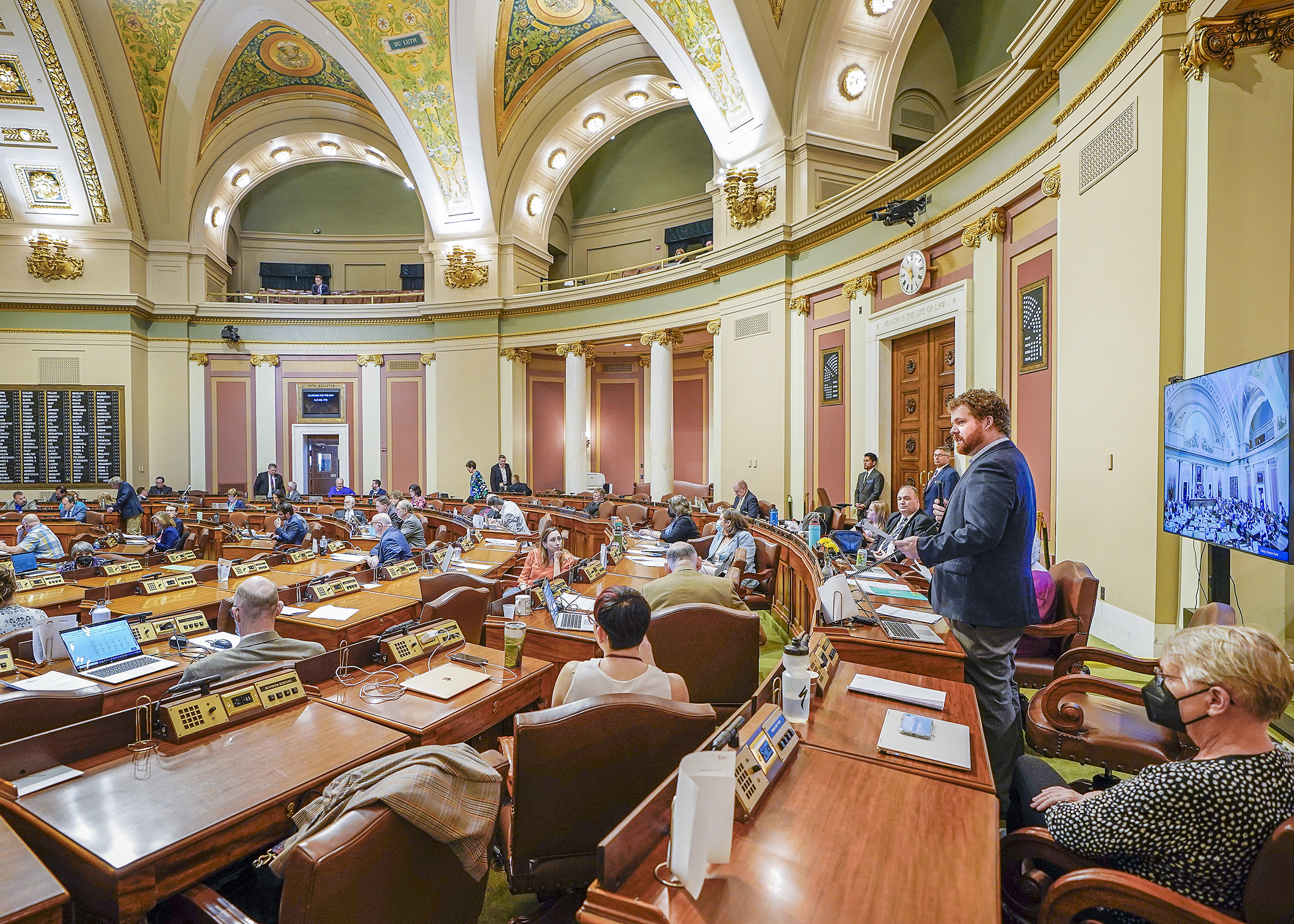House OKs legislation legalizing sports betting

By coincidence, minutes after the Minnesota Vikings 2022 schedule was announced, an opportunity to legally bet on those 17 contests got closer.
The time has come for Minnesota to move sports betting off the black market to a place where the harmful effects of gambling can be addressed, says Rep. Zack Stephenson (DFL-Coon Rapids).
Stephenson sponsors HF778, a bill that would allow residents age 21 and older to bet on sports. Legal sports betting, including mobile betting, would be conducted by tribal entities.
“Let’s be clear, sports betting is happening in Minnesota,” Stephenson said. “We have a robust black market.”
Passed 70-57 by the House Thursday, the bill is a Minnesota-specific model that would create a legal marketplace, offer consumer protection, help ensure integrity of games and stave off money laundering and other illegal activities, he said.
And, he said, it makes the largest investment of any state to address problem gaming.
“We need to be honest, that problem gaming exists. But keeping it in the shadows makes it worse,” Stephenson said.
Some legislators expressed ambivalence — if not outright opposition — to expanding gambling.
Rep. Glenn Gruenhagen (R-Glencoe) cited his experience seeing people steal from their children, stop paying bills and even die at their own hands due to problem gambling.
“Once you’re addicted, you lose the ability to make a decision,” he said. “You’re compelled to do it.”
Other legislators believe the opportunity to conduct sports betting should be offered to operators outside the 11 federally recognized tribes included in the proposed legislation. They cited a drop in revenue at racetracks in Iowa when sports betting was legalized.
Rep. Nolan West (R-Blaine) said two things that would help the bill are making sure racetracks are included and taxing charitable gaming at the same rate as the proposed sports betting.
Mobile betting accounts could be set up from anywhere in the state, and there is a three-hour waiting period before they could be used.
Rep. Jordan Rasmusson (R-Fergus Falls) unsuccessfully offered an amendment to require betters to open mobile betting accounts at brick-and-mortar locations operated by tribal entities. He said the large expansion in gambling warrants further protection, such as giving participants time to consider before refilling a betting account.
Successful amendments that were adopted aim to address issues around problem gambling including bans on push notifications, families in gambling treatment programs, and allowing rulemaking around marketing, including banning ads targeting minors.
Net revenue from online wagers would be taxed at 10%. About $5 million of that tax revenue would go to the Public Safety and Revenue departments for licensing and enforcement.
The rest would be deposited in a special fund with half going to treat compulsive gambling and the other half to an amateur sports integrity and participation fund.
Of that amount, 20% would be used help keep amateur sports clean through things like gambling education programs, performance enhancing drug interventions and training for coaches and athletes, while 80% would go to youth sports programs and facilities, especially those in areas with higher juvenile crime.
The bill now travels to the Senate where Sen. Roger Chamberlain (R-Lino Lakes) is the sponsor.
Related Articles
Search Session Daily
Advanced Search OptionsPriority Dailies
Speaker Emerita Melissa Hortman, husband killed in attack
By HPIS Staff House Speaker Emerita Melissa Hortman (DFL-Brooklyn Park) and her husband, Mark, were fatally shot in their home early Saturday morning.
Gov. Tim Walz announced the news dur...
House Speaker Emerita Melissa Hortman (DFL-Brooklyn Park) and her husband, Mark, were fatally shot in their home early Saturday morning.
Gov. Tim Walz announced the news dur...
Lawmakers deliver budget bills to governor's desk in one-day special session
By Mike Cook About that talk of needing all 21 hours left in a legislative day to complete a special session?
House members were more than up to the challenge Monday. Beginning at 10 a.m...
About that talk of needing all 21 hours left in a legislative day to complete a special session?
House members were more than up to the challenge Monday. Beginning at 10 a.m...